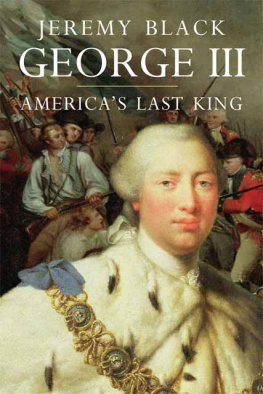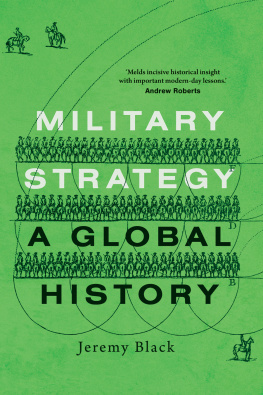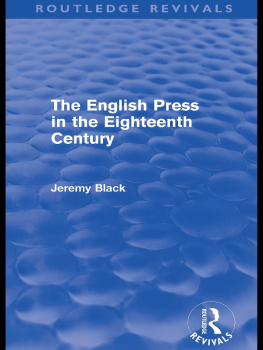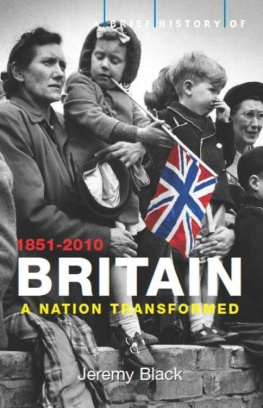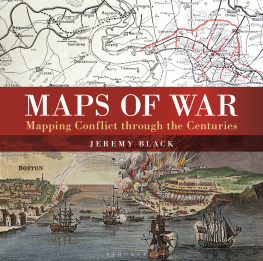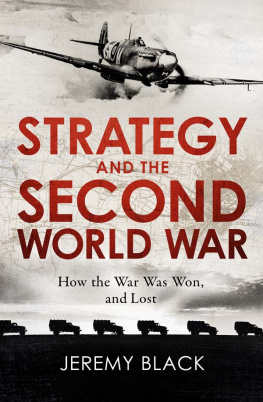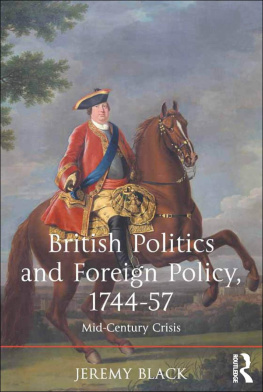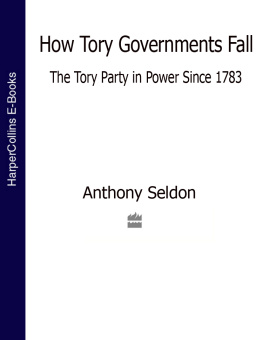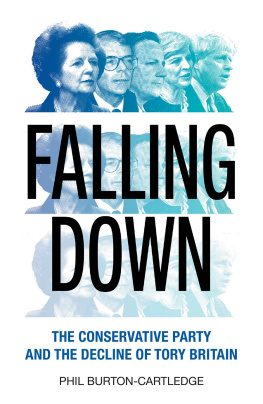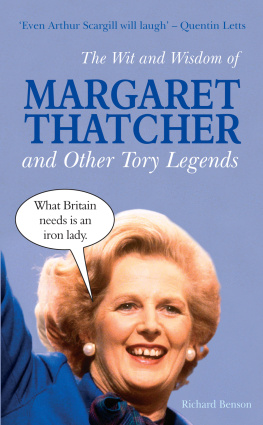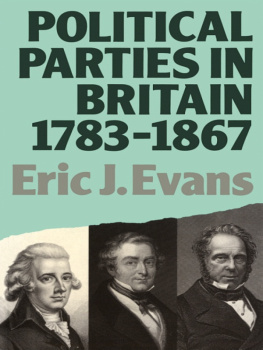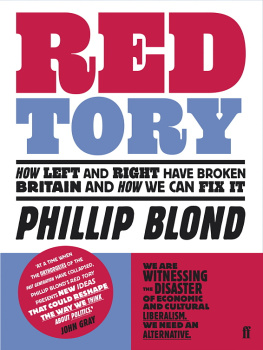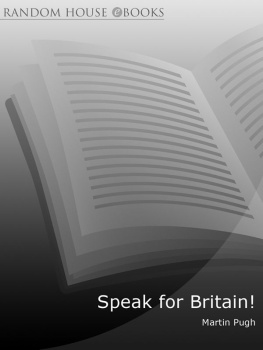First published 2015 by Ashgate Publishing
Published 2016 by Routledge
2 Park Square, Milton Park, Abingdon, Oxon OX14 4RN
711 Third Avenue, New York, NY 10017, USA
Routledge is an imprint of the Taylor & Francis Group, an informa business
Copyright Jeremy Black and the contributors 2015
Jeremy Black has asserted his right under the Copyright, Designs and Patents Act, 1988, to be identified as the editor of this work.
All rights reserved. No part of this book may be reprinted or reproduced or utilised in any form or by any electronic, mechanical, or other means, now known or hereafter invented, including photocopying and recording, or in any information storage or retrieval system, without permission in writing from the publishers.
Notice:
Product or corporate names may be trademarks or registered trademarks, and are used only for identification and explanation without intent to infringe.
British Library Cataloguing in Publication Data
A catalogue record for this book is available from the British Library
Library of Congress Cataloging-in-Publication Data
The Tory world : deep history and the Tory theme in British foreign policy, 16792014 / edited by Jeremy Black.
pages cm
Includes bibliographical references and index.
ISBN 9781472414281 (hardcover : alk. paper) ISBN 9781315552156 (ebook) ISBN 9781317013778 (epub)
1. Great Britain Foreign relations. 2. Conservatism Great Britain History. 3. Tory Party (Great Britain) 4. Conservative Party (Great Britain) History.
I. Black, Jeremy, 1955 editor, author.
DA45.T74 2015
327.41dc23
2014033497
ISBN 9781472414281 (hbk)
ISBN 9781315552156 (ebk-PDF)
ISBN 9781317013778 (ebk-ePUB)
Preface
To paraphrase Lady Eden, I feel as if the River Dnieper has been flowing through my drawing room!
David Lidington, Minister for Europe, with reference to Ukraine, referring to a remark by the wife of the Prime Minister during the 1956 Suez Crisis.
The Conservative Party has not only traditionally seen itself as a, indeed the, champion of the national interest, and indeed acted very much in this role. The party has also, at several points in its history, been deeply divided, and sometimes convulsed, by different perspectives on Britains international orientation and by competing positions taken up within the party on Europe, foreign and imperial policy. This collection examines this combination.
Apart from at times of serious division, underlying Tory/Conservative beliefs, and the more specific beliefs upon which views of Britains international role were built, were often just that: underlying, in other words assumed, and not explicitly articulated. Precisely because they were often taken as axiomatic, these views tend to be obscured from historical view. Yet, these views need to be recovered and reconsidered to understand Britains role in international affairs for over two centuries how the Tories/Conservatives have sought to navigate their way through the difficult pathways of these affairs, and why a determination to take a major role has outlasted both Britains rapid decolonisation from 1947 and Britains relative economic decline.
There has always been an interplay, for Conservatives and others, between, on the one hand, ideological or emotional views of policy, and, on the other, more instrumental views of policy. This interplay can have a strong historical dimension. Conversely, the ideological change can be centred, as with Margaret Thatcher, on allegedly distinctive Conservative ideas, rather than on historical legacy.
The national interest is a significant instance of the interplay between the instrumental and the ideological or emotional: at once being linked to the idea of policy as inherently prudential; yet, in reality, also being not a given, but, instead, a political construct. At the same time, far from there being a simple, causal relationship between the ideological and the instrumental, the structural and the ephemeral, there are other dimensions to policy (not least the role of geopolitical concerns) irrespective of the ideology and politics of the moment. In turn, the ideology and politics affect the understanding both of these dimensions and of the need to act.
Foreign policy provides a means not only for the definition and maintenance of the national interest, but also for political advantage and the pursuit of power. Foreign policy offers an apparently ready measure for radically clashing suggestions about the competence of ministers and therefore an obvious point of vulnerability for attack by the opposition. Foreign policy also advances the opportunity, indeed need, for discussion about what is happening and, even more, might happen, supplemented by claims about the responsibility for unwelcome possibilities. As foreign policy thus links the present situation to the future, as well as to the past, it provides political parties, both governing and opposition, with a continuing narrative, and enables them to articulate and deploy the weight of history. Foreign policy occurs within a far broader political discourse and is a subject for adversarial politics and the pursuit of political advantage and power.
The genesis of this book is an interest in deep history, the long-term, seemingly inherent assumptions, the emotions of policy, that help create the context for the politics and calculations of the shorter term, the urgency of the moment. This idea has parallels in the study of structures and systems, both of which are of great interest not only to historians but to social scientists as a whole. For example, the concept of strategic culture, one increasingly influential since the 1970s, in work on international relations and military affairs, has an obvious relevance to the idea of deep history.


